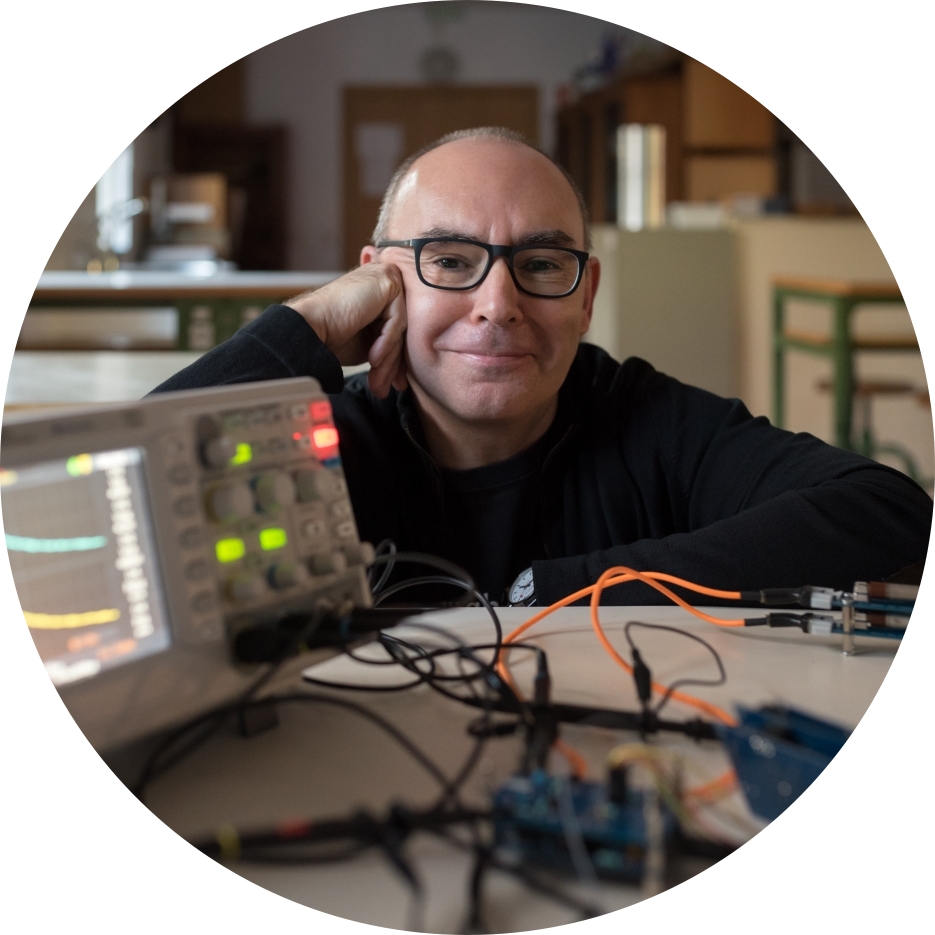e says he has seen things which that child from Orcasitas would not believe. The point of the CMS detector where Higgs bosons are created, for example. The moment when tens of teachers listened excited to the Spanish experimental physicist, Pablo García Abia, one of the thousands scientists who discovered the Higgs, saying: “We made it, we created it here”. This is just one of the Paco’s highest points of his career as a teachers trainer.
Since 2015, Paco coordinates the Spanish Teacher Programmes at CERN. The secret to continue doing it? He enjoys it very much. CERN may be not easy to describe with words, but with feelings and memories.
1st of July 2001 was the day when Paco and CERN met. Since then, Paco found a place where teachers were welcome, something which is not so common in Spain. A place on where you can develop yourself, meet people from all over the world, and cooperate with them. CERN is a global scientific laboratory, with emphasis on global.
Morriña of CERN does exists, but not really for Paco because he has been here so many times during the last 19 years. He was supposed to come to CERN this year to two or three times, but the coronavirus pandemic has forced him no to do it. Not yet.
He thinks that he is an ordinary guy. He barely knows who he is, he says he is just Paco. He ensures that he is not defined by his job, but as the French philosopher, Albert Camus, wrote, “true generosity, in relation to the future, is based on giving everything to the present”, and, somehow, that is Paco’s job: to work for today because that is the way to collaborate and to have an impact on the future.
Paco has witnessed how, year after year, science teachers from Spain has grown professionally, and also personally at CERN. With these programmes, in a few weeks, even in a few days, they are able to have a tiny look at what real science is. A taste of the borders of the particle physics.
If Paco were granted three wishes in connection with these Teacher Programmes, he would ask for more grants from the Spanish education authorities, because grants are a great and necessary investment, not a waste of money. Also, having a national Programme, so that teachers from all over Spain could go being scholarships holders, and not paying the courses with their own money, as sometimes happen. The third wish would be turning the Programmes to more institutional, which depend less on individuals and more on a solid structure.
From time to time, Paco enjoys seeing pictures of a younger version of him working at CERN with teachers from South Africa, Norway, England or Portugal. An unthinkable life experience for a kid who grew up in the south of the Spanish capital in the 70s. It still amazes him.
Thanks to CERN and, particularly, its people, Paco has seen things you wouldn’t believe, and one day, as Roy Batty dramatically said in Blade Runner, “all those moments will be lost in time, like tears in rain”.
